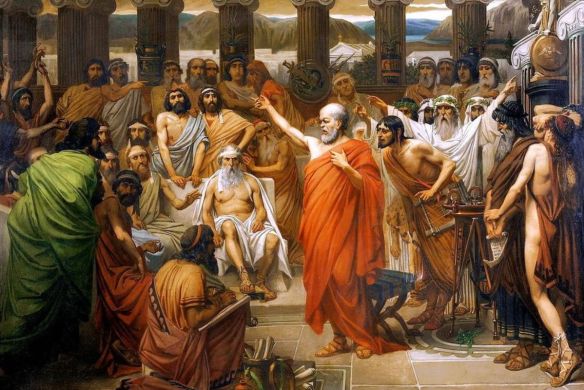
Socrates (469-399 BC) is widely considered one of the most influential philosophers of his era. Not much is known about his early life, but Plato’s account of Socrates’ life is probably the most accurate. Born to a stone mason father, Socrates might have been the first mainstream philosopher to use what is now known as the “Socratic Ignorance,” which is when someone is so wise that he is fully aware of all his shortcomings.
Morality was Socrates’ main philosophical pursuit. He thought that truth and standards always exist, and people should use reason to find them. This is why he opposed a group called the Sophists, who in contrast did not believe in truth at all. In Socrates’ opinion, they would rather seem to win an argument than actually convince someone of their view. The Sophists taught that all truth was relative, and the only morals in existence are the ones in which someone believed. To counter this argument, Socrates simply stated that he was right and they were wrong.
When Socrates was sentenced to death by poison in 399 BC for “corrupting the youth,” Plato was 20 years old, a devoted follower of Socrates, and continued the Socratic way of teaching. All of Plato’s writings that we have today are in the form of a dialogue, with a set of characters talking to each other. A main character in his dialogue is even named after Socrates. One of Plato’s main doctrines was the theory of forms, which states that the world is full of non-physical things like ideas, and that physical things are just imitations of the forms.

Unlike other philosophers of his time, Plato thought that although the highest part of man was his intellect, it was not all of who he is, and sometimes pleasure is a good part of life. Similarly to Socrates, Plato also opposed the ideas of atheism, relativism, materialism, and hedonism. Even though they lived before the time of Jesus Christ, Socrates and Plato influenced later Christian theologians years later.

You must be logged in to post a comment.